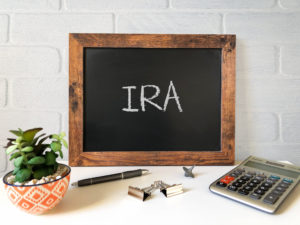 On December 20, 2019, President Trump signed into law the “Setting Every Community Up for Retirement Enhancement Act” (the SECURE Act). This new law changes how IRAs and certain other retirement benefits must be treated after death. These changes are significant, and they may affect your existing estate plan.
On December 20, 2019, President Trump signed into law the “Setting Every Community Up for Retirement Enhancement Act” (the SECURE Act). This new law changes how IRAs and certain other retirement benefits must be treated after death. These changes are significant, and they may affect your existing estate plan.
With just a few exceptions, which I will explain below, the passage of the new SECURE Act eliminates the ability of a beneficiary of your retirement plan to stretch their receipt of those proceeds out over an extended period of time.
For example, in the case of an IRA, prior to the SECURE Act your beneficiary had the option to stretch his or her required annual minimum distributions over his or her life expectancy. This allowed the beneficiary to defer income tax while permitting the balance to compound. This was a very nice benefit, especially for beneficiaries who were much younger than the owner of the IRA. But now under the SECURE Act, most beneficiaries inheriting an IRA (or other defined contribution plans) will be required to completely withdraw all plan assets within 10 year of the date of the owner’s death. Continue reading


 An Individual Retirement Account (“IRA”) is a type of investment account that allows an individual to save money for retirement, with the earnings on the account potentially being tax deferred until they are later withdrawn at retirement. (Withdrawals from a Roth IRA can actually be tax free provided certain conditions are met).
An Individual Retirement Account (“IRA”) is a type of investment account that allows an individual to save money for retirement, with the earnings on the account potentially being tax deferred until they are later withdrawn at retirement. (Withdrawals from a Roth IRA can actually be tax free provided certain conditions are met).